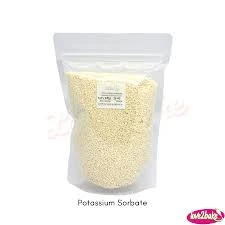
common emulsifiers in food
Common Emulsifiers in Food
Emulsifiers are substances that help stabilize mixtures of oil and water, preventing them from separating. These compounds play a crucial role in the food industry, enabling the creation of diverse products with desirable textures and flavors. Understanding common emulsifiers in food can illuminate their importance in our diet and food production processes.
One of the most recognized emulsifiers is lecithin, which is found naturally in foods such as eggs and soybeans. Lecithin is a phospholipid that aids in the emulsification process, allowing oil-based and water-based ingredients to blend smoothly. It is commonly used in products like mayonnaise, chocolate, and salad dressings. The presence of lecithin not only improves the stability of these emulsions but also enhances their mouthfeel, creating a creamier texture.
Common Emulsifiers in Food
Sodium stearoyl lactylate is another emulsifier that has gained popularity in the food industry, particularly in baked goods. This compound is a multifunctional ingredient, contributing to the elasticity of dough while also enhancing its ability to retain gas during fermentation. As a result, products made with sodium stearoyl lactylate often have a better volume and texture, making it a valuable addition to bread and rolls.
common emulsifiers in food

Polysorbates, such as polysorbate 20 and 80, are also widely used emulsifiers. These compounds are synthetic derivatives of sorbitol and fatty acids. They are known for their ability to create stable emulsions and are commonly used in salad dressings, sauces, and various dairy products. Polysorbates work by reducing the surface tension between oil and water, facilitating the mixing of these two phases and ensuring a smooth consistency.
Another common emulsifier is casein, a protein found in milk that can act as an emulsifier when used in dairy products. Casein stabilizes emulsions in foods such as cheese and yogurt, helping to maintain their texture and preventing the separation of fat. This protein not only enhances the mouthfeel but also contributes to the nutritional value of dairy products, making them a good source of protein and calcium.
Finally, xanthan gum and guar gum are examples of natural emulsifiers derived from plant sources. These gums are used to thicken and stabilize food products, providing texture and preventing separation. They are often found in salad dressings, sauces, and gluten-free baked goods, where they serve to improve consistency and mouthfeel.
In conclusion, emulsifiers play a vital role in the formulation of various food products. Their ability to stabilize mixtures of oil and water not only enhances texture and flavor but also extends shelf life. Understanding the role of common emulsifiers—such as lecithin, mono- and diglycerides, sodium stearoyl lactylate, polysorbates, casein, and plant-derived gums—can help consumers appreciate the complexity of food science and the formulation processes behind their favorite items. As the food industry continues to innovate, the importance of emulsifiers remains a fundamental aspect of creating high-quality, stable food products.
-
Understanding Synthetic Rubber OptionsNewsApr.27,2025
-
Trichloroisocyanuric Acid: Essential for Clean and Safe WaterNewsApr.27,2025
-
Sodium Dichloroisocyanurate: Key to Safe Water TreatmentNewsApr.27,2025
-
Sodium Acid Pyrophosphate: Essential in Modern Food ProcessingNewsApr.27,2025
-
Essential Water Treatment ChemicalsNewsApr.27,2025
-
Denatured Alcohol and Its Industrial UsesNewsApr.27,2025
-
The Versatile Uses of Sodium BicarbonateNewsApr.24,2025
Hebei Tenger Chemical Technology Co., Ltd. focuses on the chemical industry and is committed to the export service of chemical raw materials.
-

view more DiethanolisopropanolamineIn the ever-growing field of chemical solutions, diethanolisopropanolamine (DEIPA) stands out as a versatile and important compound. Due to its unique chemical structure and properties, DEIPA is of interest to various industries including construction, personal care, and agriculture. -

view more TriisopropanolamineTriisopropanolamine (TIPA) alkanol amine substance, is a kind of alcohol amine compound with amino and alcohol hydroxyl, and because of its molecules contains both amino and hydroxyl. -

view more Tetramethyl Thiuram DisulfideTetramethyl thiuram disulfide, also known as TMTD, is a white to light-yellow powder with a distinct sulfur-like odor. It is soluble in organic solvents such as benzene, acetone, and ethyl acetate, making it highly versatile for use in different formulations. TMTD is known for its excellent vulcanization acceleration properties, which makes it a key ingredient in the production of rubber products. Additionally, it acts as an effective fungicide and bactericide, making it valuable in agricultural applications. Its high purity and stability ensure consistent performance, making it a preferred choice for manufacturers across various industries.











